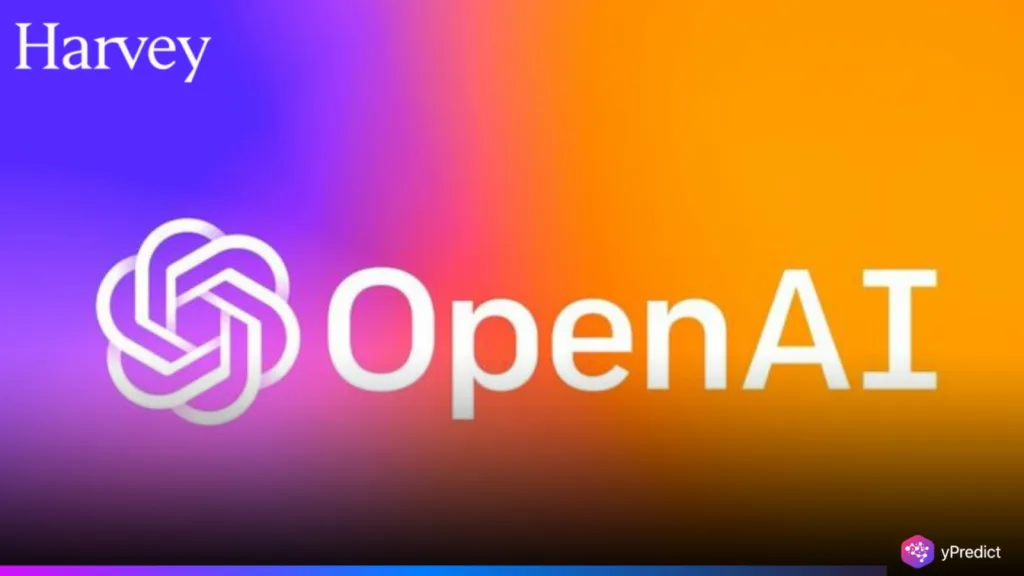
Harvey AI has secured $300 million in Series E funding, boosting its valuation to $5 billion. The legal tech startup, renowned for its enterprise-grade generative AI platform tailored for lawyers and compliance professionals, aims to accelerate global expansion and product innovation. With backing from Kleiner Perkins, Coatue, Sequoia, and the OpenAI Startup Fund, Harvey is poised to redefine how legal teams operate at scale.
Legal AI Adoption Surges as Harvey Expands to 50+ Countries
Harvey, the fast-rising legal technology firm redefining AI in law, announced a $300 million Series E funding round, boosting its valuation to $5 billion. The round, co-led by Perkins and Coatue with backing from Sequoia, GV, DST Global, OpenAI Startup Fund, and others, follows a $300 million Series D raised just months earlier, one of the fastest valuation jumps in legal tech.
Former litigator Winston Weinberg and AI expert Gabe Pereyra launched Harvey in 2022 to transform legal work with AI solutions. Harvey quickly became a leading force, now supporting over 330 clients, including Paul, Weiss, and corporate teams at KKR and PwC. Its platform uses models from OpenAI, Anthropic, and others while integrating proprietary legal workflows for firm-specific, secure AI adaptation.
Ilya Fushman, who helped lead this funding round and previously co-led Harvey’s Series B while also taking part in its Series C and D rounds, said in a statement that,
We’ve seen the company perform incredibly well across all facets. It sets the blueprint for how a vertical AI enterprise company can build and execute.
With over 340 employees operating across 53 countries, Harvey plans to use the fresh capital to double its team and broaden its focus beyond the legal domain. Expansion into adjacent fields like tax accounting is already on the horizon, part of its broader mission to build an automation platform for knowledge-intensive industries.
Innovation, Security, and Industry Impact
The company’s aggressive growth strategy includes significant product development, data infrastructure enhancements, and deepening support for multinational clients such as Verizon and leading financial institutions. Weinberg, who serves as Harvey’s CEO, highlights the necessity of this funding. He notes,
[The investment will be used for] investing more in international expansion and supporting customers around the globe. We are in 53 countries now and want to support that growth.
Harvey, unlike earlier legal AI startups that struggled to gain traction, has won strong support from customers and investors. Central to its success is a focus on security and customisation, with 10% of its team dedicated to safeguarding data. The company conducts regular external audits and meets industry security standards, earning client trust in sensitive legal environments.
Harvey’s platform has significantly streamlined legal workflows, reducing tasks that once took weeks to just minutes. Its AI tools enable teams to efficiently draft, proofread, translate, and manage complex documents. Notably, its custom neural networks power automated contract revision summaries, accelerating the redlining process.
Market Competition, Adoption Hurdles, and the Future of Legal Tech
Harvey’s technology offers major productivity gains while challenging the traditional billable-hour model, as legal work increasingly shifts to fixed fees and efficiency-driven billing. Its multi-model AI approach provides flexibility but adds complexity, making success dependent not just on technology, but on firms’ commitment to change management and adoption.
The competitive landscape remains fierce. Rivals like Ironclad and Clio continue to grow, while specialised players such as Luminance and Hebbia focus on niche legal workflows. Meanwhile, major technology providers are increasingly eyeing the legal sector as a high-potential growth market.
As Harvey grows, its focus is on strengthening client retention, expanding into new service areas, and enhancing professional services profitability. Analysts project that, if momentum continues, Harvey could reach $200 million to $300 million in annual recurring revenue by late 2026, setting the stage for a possible IPO or acquisition. Its rapid rise highlights AI’s real and growing role in transforming legal work, with Harvey leading this shift.






